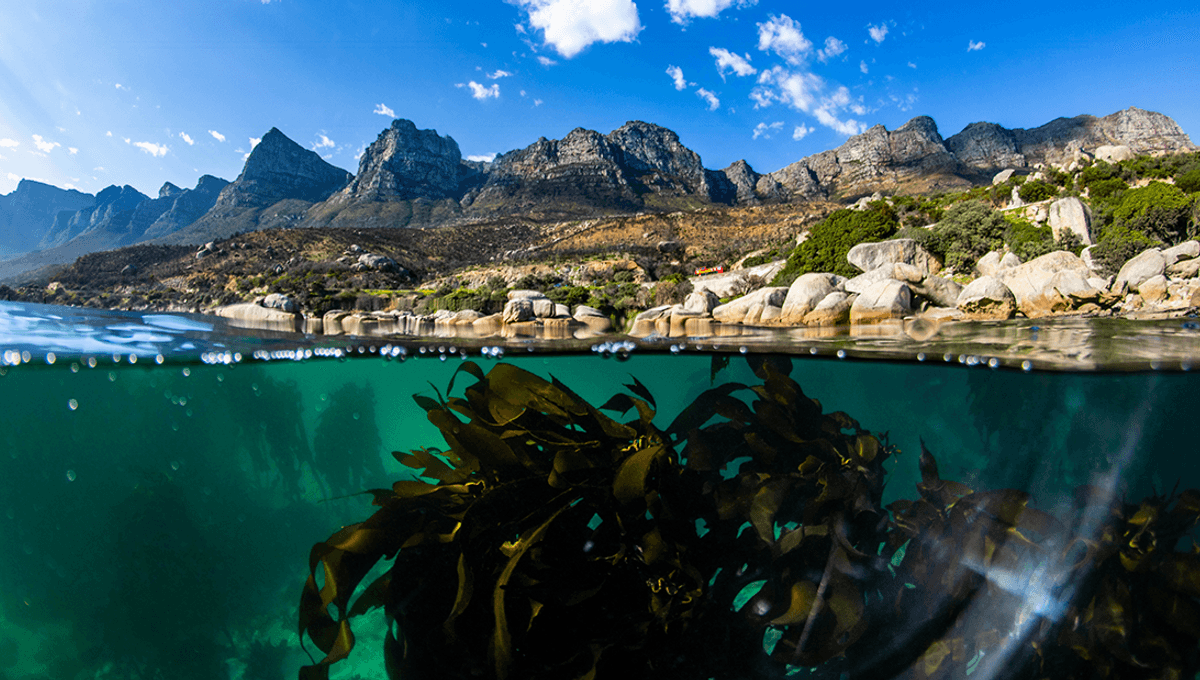
Destruction of the world’s rainforests has long been a topic of environmental concern, with a warming world, habitat loss, and species extinctions all coming to the fore. While the impact of climate change has also been felt in the world’s oceans, and well documented in the media through the loss of coral reefs, there’s one type of forest that has been somewhat overlooked: Kelp forests.
Kelp forests have massive cultural and socioeconomic importance, directly providing food, being used as fertilizer for land crops, and providing food and medical additives like alginate. According to one study, it is estimated that approximately 740 million people live within 50 kilometers (30 miles) of a kelp forest. Charles Darwin himself compared the kelp forest in South America to tropical rainforests, drawing an analogy between the two due to the manner in which they support a plethora of species. Kelp forests do support many underwater species; a study in Norway found that as many as 80,000 organisms were supported on average by a single stalk of kelp.
Despite this, kelp forests are declining globally, and research is limited when it comes to the causes of these declines and their long-term impact. Part of the reason for this is that kelp forests are being grouped into categories such as “coastal ecosystems” as they are found in coastal areas of temperate and Arctic areas across the world. This lack of research may also be partly because there is no real agreed definition of what kelp actually is.
Largely kelp species are formed of three parts; the blade, long leaf-like strands that take in sunlight; the stipe that supports the blades; and the anchor part, known as a holdfast, that secures the kelp blades to the ocean floor. Some researchers prefer to use the term “kelp” to refer exclusively to brown seaweed of the order Laminariales, while others prefer a broader definition that encompasses their role within the ecosystem as three-dimensional environments.
Made somewhat famous by the Netflix show My Octopus Teacher, kelp forests are beginning to be recognized for their role in carbon capture and the homes they provide for thousands of marine species. Despite their estimated global worth of $500 billion due to their contributions to fisheries and nitrogen removal, these majestic underwater forests are not immune to the effects of the climate crisis.
To monitor and combat kelp forest declines, Kelpwatch uses satellites to monitor regions of kelp forest populations. This helps to visually represent the impact of marine heatwave events on bull kelp and giant kelp forests. Nearly 40 years’ worth of data on kelp forest growth is available to help scientists identify areas for research and management.
A 2020 paper that looked at the use of “green gravel” to help restore kelp forests suggests that other methods for restoration have been limited and expensive. By rearing kelp in a laboratory until they were 2-3 centimeters (0.7 -1 inches) long and then planting out in the field, the team found this method had a high survival and growth rate after nine months.
This is not the only means of helping kelp – a recent United Nations Environment Programme Report has outlined the importance of devoting resources to the “conservation, sustainable management, and restoration of kelp”. This report suggests that kelp forests cover an area of the ocean up to five times greater than that of all the coral reefs put together.
These hugely important areas need vital protection from heatwave events, a rise in invasive species, and an increase in herbivore predators. Unless protections are put in place to protect kelp forests, these dramatic declines will no doubt continue putting not just the ecosystem but potentially human lives at risk.
[H/T: Vox]
Source Link: Huge Areas Of Underwater Forests Are Overlooked And Under Threat